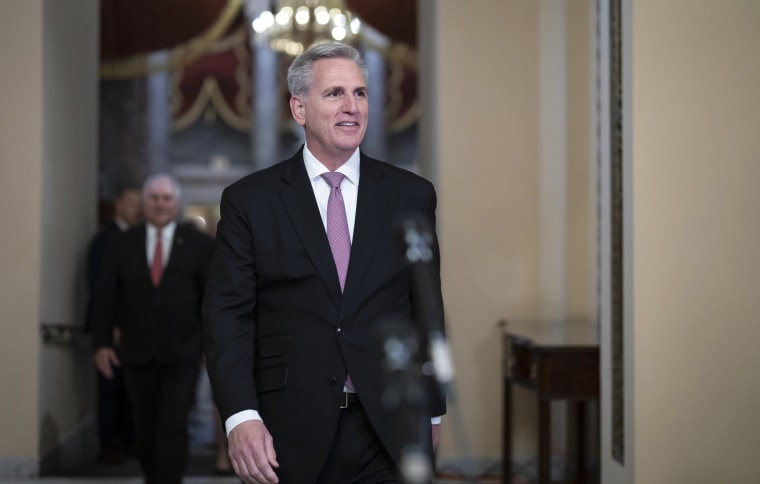House Speaker Kevin McCarthy, R-Calif., will meet Wednesday with Taiwanese President Tsai Ing-wen in a summit that China called a "provocation."
McCarthy's office announced Monday that the House leader will host a bipartisan meeting with Tsai at the Ronald Reagan Presidential Library in California. McCarthy's announcement did not specify which other members of Congress will attend the meeting. Sen. Roger Wicker, R-Miss., the minority leader of the Armed Services Committee, said in a statement Friday that other Republicans could join the meeting, including Rep. Mike Gallagher, R-Wis., who heads a House select committee on China.
Taiwan is a self-governing island democracy that China claims as its territory. Speaking before her departure last week, Tsai said her government would "neither yield nor provoke." But ahead of Tsai’s trip to America, the Chinese government said a meeting with McCarthy would be a "provocation" and threatened retaliation.
U.S. officials, by contrast, claim visits and meetings with high-level Taiwanese officials are routine. White House National Security Council spokesman John Kirby said last week that Tsai met with U.S. officials and held public appearances in "all previous transits."
Rep. Hakeem Jeffries, D-N.Y., the top Democrat in the House, quietly met Thursday with Tsai in New York. A spokesperson for Jeffries declined to comment on the meeting.
Then-Speaker Nancy Pelosi, D-Calif., a longtime China hawk, visited Taiwan last August, prompting China to respond by launching live-fire military exercises.
Taiwan said last week there was no indication of changes to China’s usual military deployment in the area, which has included sending warplanes toward the island almost daily.
Yale professor Arne Westad, an expert in Chinese history, said he expects a “relatively strong reaction” from Beijing. Relations between the U.S. and China, the world’s strongest superpowers, are the worst they’ve been in the last 40 years, he added.
Westad said that he thought the U.S. should support Taiwan's "safety and viability" but questioned whether provoking China was the best path forward.
“I think the United States has a definite interest, as do many other countries, in making sure that Taiwan is more secure and also, for that matter, better able to defend itself against a potential PRC attack," Westad said, referring to China's official name, the People's Republic of China. "But I’m not convinced that having meetings that would be seen as highly provocative by the PRC side at this point is the right way forward.”
Westad said he feared that provocations would make it less likely the U.S. and China could maintain peace if a crisis brings them closer to war. “There is a solution, and that solution is status quo," he said. "It’s not an ideal solution, but it’s the only solution that has the potential in it of avoiding war on Taiwan.”
